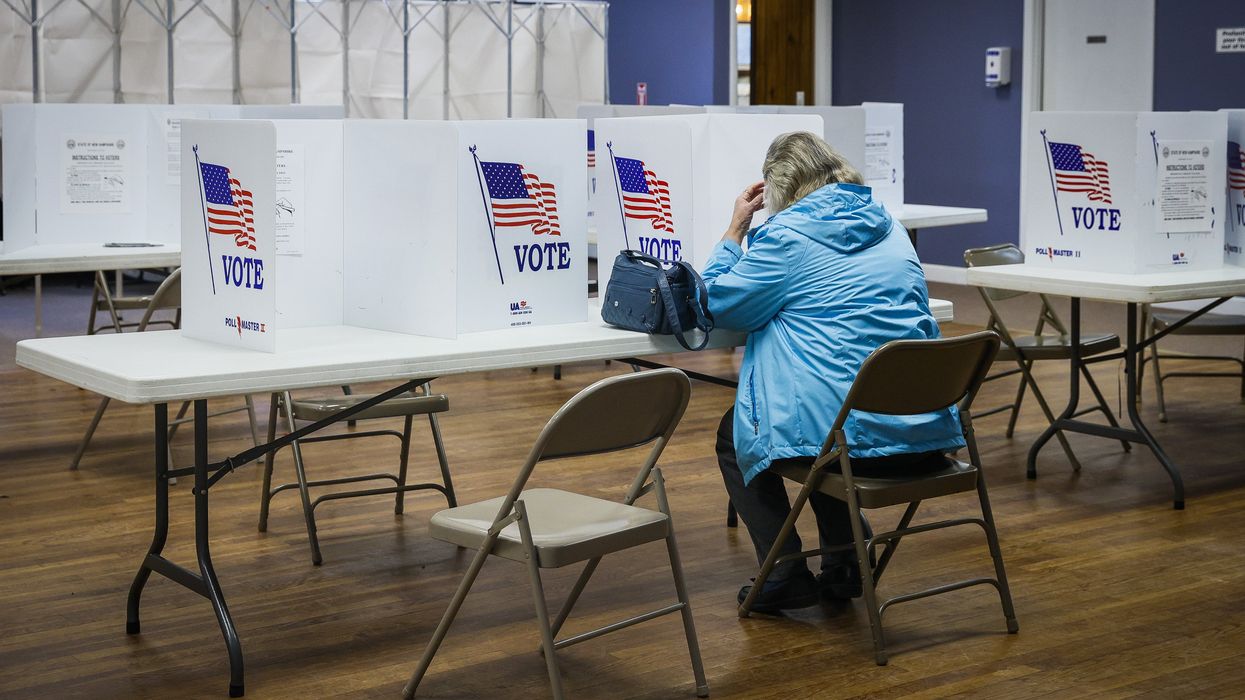Rosenfeld is the editor and chief correspondent of Voting Booth, a project of the Independent Media Institute.
The presidential primary season has always been the start of America’s highest turnout elections. But 2024 is off to a rough start, even if there may be one bright spot.
The opening contests – in Iowa, New Hampshire and South Carolina – were, if we are honest, duds. They were not competitive. Going into Iowa, Michael McDonald, the University of Florida professor whose U.S. Elections Project is the go-to source for voter turnout data and analysis, tweeted, “In a normal election, losing by 30 points would be the end of a campaign. But since we have to play make-believe second place is meaningful, we must carry on…”
So on Jan. 15, some Iowans went out in an Arctic blizzard and near-zero temperatures. Only 110,000 Republicans — less than one-fifth of Iowa’s active registered Republicans, and less than 6 percent of all of Iowa’s registered voters — gathered in person to caucus. Donald Trump won.
By the time 2024’s first primary election was held in New Hampshire, eight days later, only Nikki Haley was still running against Trump, who again won. On the Democratic side, President Joe Biden was not on the ballot — although a write-in effort was underway, which, no surprise, he won. (Biden’s absence was the penalty imposed by the Democratic National Committee after New Hampshire Democrats would not follow the DNC’s calendar — which scheduled South Carolina as 2024’s first primary.)
On Saturday, Feb. 3, the turnout in South Carolina’s Democratic primary, where Biden won 96.2 percent of the vote, was even more anemic than Iowa’s Republican caucuses. Only 131,000 voters, or 4 percent, of the state’s 3.2 million registered voters, turned out. That’s less than a quarter of the voters in its 2020 primary, when Biden won in a field of 12 candidates.
Lack of competition, bad weather, intra-party feuds and a lack of enthusiasm are only some of the reasons why 2024 is off to a rough start. In South Carolina – and in Nevada and Michigan, which are up next – the Democratic and Republican contests are not even being held on the same day. None of this encourages participation. So, where is the bright spot?
Ironically, it is in the fine print of recent reporting from Michigan, where, on Feb. 27, Democrats will hold a state-run primary. (Republicans will hold party-run caucuses on March 2.) According to WKAR, Michigan State University’s public TV and radio affiliate, several local clerks are reporting anywhere from 14 percent to 25 percent of their voters have applied to receive a mailed-out ballot. Despite presidential nominating contests where the winner is known, there are people who still want to vote — and, notably, they want voting to be convenient.
“A lot of people say, ‘I like voting from my kitchen table,” Delta Township Clerk Mary Clark told WKAR. Her township has about 30,000 registered voters. More than a quarter have applied for a mailed-out ballot for the upcoming Democratic primary.
It is not surprising that turnout will go up when voting is more convenient. Several academic studies since the 2020 presidential election have affirmed this trend and probed its partisan impacts. Those studies have found that voting with mailed-out ballots has generally boosted overall turnout for the major parties. And, in some cases, it has helped Republicans.
The 2020 primary season is mostly long forgotten. But in early March, the Covid-19 pandemic struck. Election officials responded by postponing some contests. They also expanded the use of mailed-out ballots to protect the health of voters and election workers. Trump, then seeking re-election, attacked voting by mail. He claimed that option, especially in the fall, mostly benefited Democrats. Many Republicans still view voting via a mailed-out ballot with suspicion.
However, the first post-2020 academic studies found that using mailed-out ballots increased both parties’ overall turnout. And contrary to Trump’s claims, it may have helped Republicans more than Democrats because mailing ballots to voters in red-run states, where that voting option did not previously exist, ended up boosting Republican participation.
That was “precisely the opposite of the claims made by former President Trump and others,” Eric McGhee, of the Public Policy Institute of California, and Mindy Romero, of the University of Southern California’s Price School of Public Policy, co-wrote in their April 2021 paper, “ Vote by Mail Policy and the 2020 Presidential Election.”
Other post-2020 studies found that mailing every eligible voter a ballot, as was done in New Jersey, was pivotal in increasing turnout by younger voters (people ages 18 to 34). A 2023 study by Phil Keisling, Oregon’s former secretary of state — who nationally pioneered mailing every voter in his state a ballot and who now chairs the National Vote at Home Institute’s board — found that no other reform has had a greater impact on turning out young voters.
“Despite billions spent by the major political parties on media ads, voter registration drives, and other Get out the Vote efforts targeting young voters, it was non-battleground, Vote at Home states that dominated the list of Top Turnout states for young voters in 2020,” said Barbara Smith Warner, NVAHI executive director, said in a release on Keisling’s study.
The presidential nominating season may be off to a low-energy start. No doubt, the months ahead and this fall will see billions spent for partisan messaging and voter engagement. While Americans of all ages and partisan stripes will likely vote, there are early indications that states offering more convenient voting options will see increased turnout.
Early anecdotal reports from Michigan’s upcoming Democratic primary suggest that is the case. And we will soon see what the turnout will be in Nevada’s Democratic primary — which, for the first time, finds county officials mailing every voter a ballot. In a primary season that’s off to a drab start, ongoing interest in voting from home may be an emerging bright spot.




















